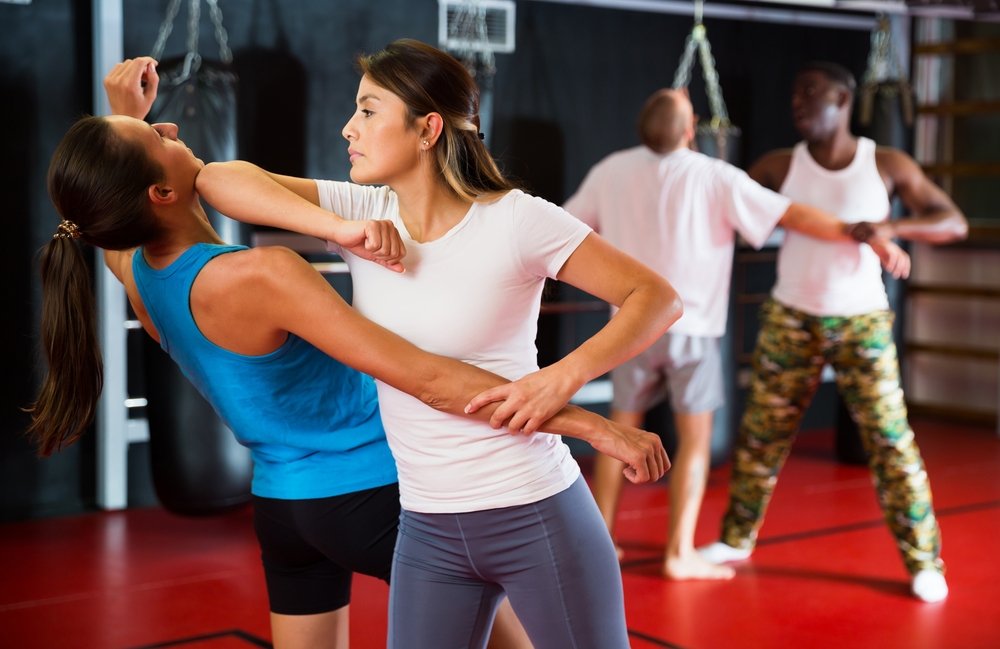Is Krav Maga Good for Self-Defense? Everything You Need to Know
When it comes to protecting yourself in real-life situations, not all martial arts are created equal. So, is Krav Maga good for self-defense? The short answer is yes, and in this blog, we’ll explain why.

The Israel Defence Forces (IDF) created Krav Maga to give soldiers useful, simple-to-learn tactics for actual combat situations. It has been modified over time for civilian use, assisting individuals of all ages and fitness levels in becoming more resilient, secure, and self-assured. This article will explain the effectiveness of Krav Maga, how it differs from other martial arts, and how you can use it to defend your family and yourself.
What Is Krav Maga?
Krav Maga is a hybrid form of self-defence that incorporates judo, aikido, karate, boxing, and wrestling techniques. It emphasises practical uses rather than competition, in contrast to traditional martial arts. The strategies use aggressive counterattacks and instinctive movements to swiftly neutralise threats.
Key Principles of Krav Maga:
- Neutralize the threat quickly
- Use natural, instinctive movements
- Train for real-life situations under stress
- Defend and counterattack at the same time
- Disarm attackers with weapons (guns, knives, sticks)
Why Krav Maga Is Great for Self-Defense
1. Real-World Focus
Krav Maga techniques are designed to work under pressure. Training simulates realistic scenarios such as street attacks, muggings, or multiple assailants.
2. Quick Learning Curve
Unlike traditional martial arts that may take years to master, Krav Maga focuses on practical moves that you can learn quickly and apply effectively.
3. Situational Awareness
Krav Maga teaches you more than just how to strike or block. It builds awareness and teaches you how to avoid dangerous situations before they escalate.
4. Defense Against Weapons
Many martial arts don’t cover weapon defense. Krav Maga includes practical strategies for disarming attackers with knives, guns, or blunt objects.
5. Builds Confidence
Knowing how to handle yourself in a dangerous situation boosts your self-confidence in everyday life, whether you’re walking home at night or traveling abroad.
Krav Maga vs Other Martial Arts for Self-Defense
Krav Maga vs. Karate
Karate is traditional and sport-oriented. Krav Maga is combat-focused and geared toward real threats.
Krav Maga vs. Brazilian Jiu-Jitsu (BJJ)
BJJ is excellent for ground fighting, but assumes a one-on-one scenario. Krav Maga prepares you for multiple attackers and fast escapes.
Krav Maga vs. Boxing
Boxing is great for strikes but lacks grappling or weapon defense. Krav Maga combines striking with close-quarter tactics and defense scenarios.
Who Should Train in Krav Maga?
- Women seeking practical self-defense
- Men wanting confidence and conditioning
- Teens learning situational awareness
- Law enforcement and security professionals
What to Expect in a Self-Defense Class
A Krav Maga self-defense class typically includes:
- Warm-up and mobility drills
- Basic striking techniques (punches, elbows, knees)
- Defense against grabs and holds
- Disarm techniques for weapons
- Partner drills and scenario simulations
- Cool-down and Q&A
Real-World Success Stories
Many students report successfully defending themselves thanks to Krav Maga. Law enforcement and military units worldwide also trust it as their core hand-to-hand combat training. Civilian testimonials often highlight increased confidence, better fitness, and mental toughness.
How to Get Started with Krav Maga
- Find a certified Krav Maga school in your area (e.g., Guardian Krav Maga in Maryland)
- Attend a trial class to get a feel for the training style
- Wear comfortable workout clothes and bring water
- Stay consistent, 2 to 3 sessions per week deliver real results
- Practice awareness outside the gym too, “prevention is key”
FAQs
Conclusion
So, is Krav Maga good for self-defense? Without a doubt. It’s one of the most practical, realistic, and empowering systems available today. Whether you’re protecting yourself, your family, or just want to feel more confident, Krav Maga gives you the tools to respond to real-life threats effectively.
If you’re serious about self-defense, consider taking a class at a certified school like Guardian Krav Maga. You’ll build strength, awareness, and skills that go beyond the gym, helping you feel safer and stronger every day.

